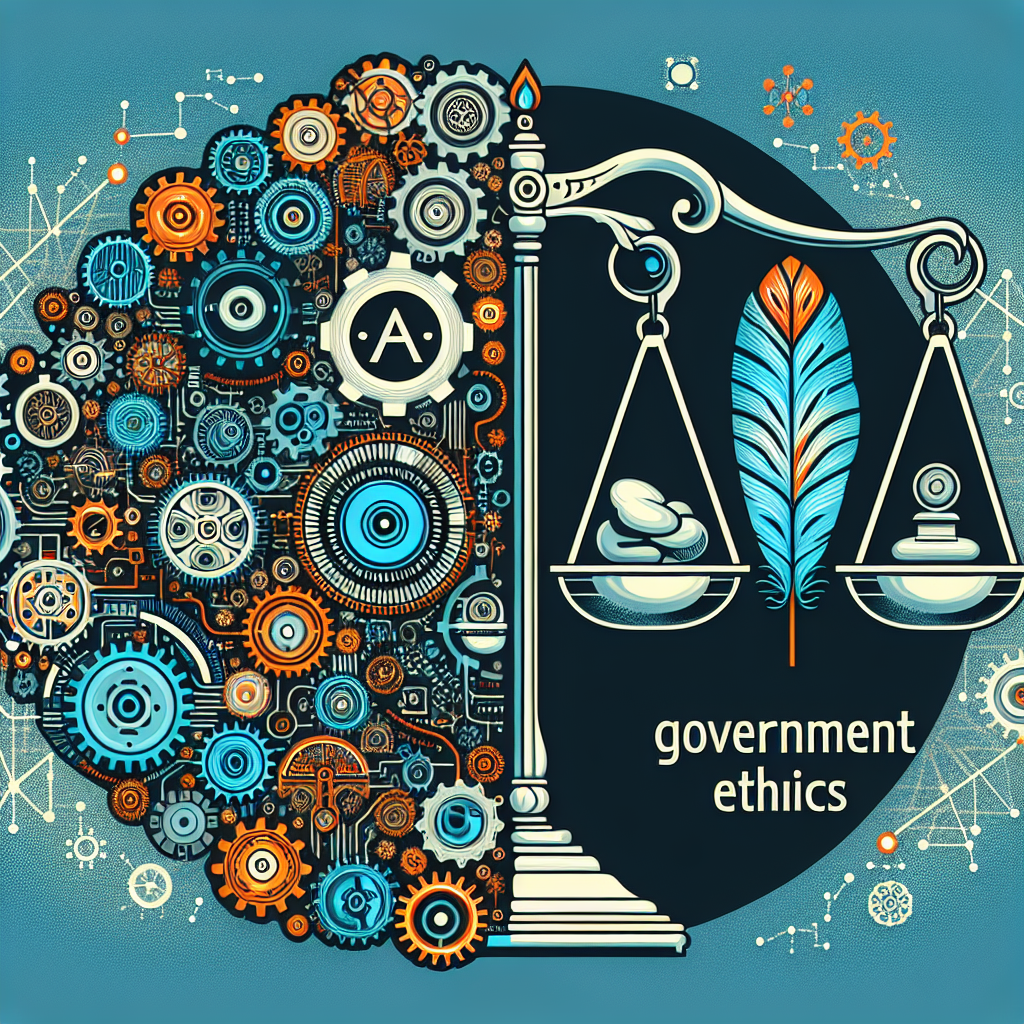The Intersection of AI and Government Ethics
Artificial intelligence (AI) has become an increasingly prominent tool in government operations, offering the potential to streamline processes, improve decision-making, and enhance services for citizens. However, the use of AI in government also raises complex ethical questions that must be carefully considered. As AI continues to play a larger role in governance, it is essential to address these ethical concerns to ensure that AI is used responsibly and ethically by government agencies.
One of the key ethical considerations in the intersection of AI and government is the issue of transparency. AI systems are often complex and opaque, making it difficult for citizens to understand how decisions are made and how data is used. This lack of transparency can lead to concerns about accountability and fairness, as citizens may not be able to challenge or appeal decisions made by AI systems. To address this issue, government agencies must prioritize transparency in the development and deployment of AI systems, providing clear explanations of how AI is used and ensuring that decisions made by AI systems are understandable and explainable.
Another ethical consideration is the potential for bias in AI systems. AI algorithms are trained on data, and if this data is biased or incomplete, the AI system may produce biased or discriminatory outcomes. This is particularly concerning in government applications, where AI systems may be used to make decisions about individuals’ access to services, benefits, or opportunities. To address this issue, government agencies must carefully consider the data used to train AI systems and take steps to mitigate bias in AI algorithms. This may involve conducting bias assessments, using diverse data sets, and regularly monitoring and evaluating AI systems for bias.
Privacy is another critical ethical consideration in the use of AI in government. AI systems often rely on large amounts of data to make predictions and decisions, raising concerns about the collection, use, and storage of personal information. Government agencies must ensure that AI systems comply with privacy laws and regulations, such as the General Data Protection Regulation (GDPR) in the European Union or the Health Insurance Portability and Accountability Act (HIPAA) in the United States. Agencies must also be transparent about how data is used in AI systems and take steps to protect the privacy and security of individuals’ personal information.
In addition to transparency, bias, and privacy, there are other ethical considerations that must be addressed in the intersection of AI and government. These include issues such as accountability, fairness, and the impact of AI on human autonomy and decision-making. Government agencies must carefully consider these ethical concerns and develop policies and guidelines to ensure that AI is used responsibly and ethically in governance.
FAQs
Q: What are some examples of AI applications in government?
A: AI is being used in a variety of ways in government, including in areas such as healthcare, law enforcement, transportation, and social services. For example, AI systems are being used to analyze healthcare data to identify patterns and trends, improve patient outcomes, and reduce healthcare costs. In law enforcement, AI is being used to analyze crime data to predict and prevent criminal activity. In transportation, AI is being used to optimize traffic flow, improve public transportation systems, and enhance safety. In social services, AI is being used to identify individuals in need of assistance, streamline service delivery, and improve outcomes for vulnerable populations.
Q: How can government agencies ensure that AI systems are transparent?
A: Government agencies can ensure that AI systems are transparent by providing clear explanations of how AI is used, how decisions are made, and how data is used. Agencies can also make AI systems explainable by using interpretable algorithms and providing understandable explanations of AI decisions. Additionally, agencies can involve stakeholders in the development and deployment of AI systems, conduct regular audits and evaluations of AI systems, and be transparent about the limitations and risks of AI technology.
Q: What are some ways that government agencies can mitigate bias in AI systems?
A: Government agencies can mitigate bias in AI systems by carefully selecting and preparing data sets, using diverse data sources, and regularly monitoring and evaluating AI systems for bias. Agencies can also use techniques such as bias assessments, fairness-aware algorithms, and bias mitigation strategies to identify and address bias in AI algorithms. Additionally, agencies can involve diverse stakeholders in the development and deployment of AI systems to ensure that bias is identified and addressed from multiple perspectives.
Q: How can government agencies protect privacy in AI systems?
A: Government agencies can protect privacy in AI systems by complying with privacy laws and regulations, such as GDPR or HIPAA, and by implementing privacy-preserving techniques, such as data anonymization, encryption, and access controls. Agencies can also conduct privacy impact assessments to identify and mitigate privacy risks in AI systems, and involve privacy experts in the development and deployment of AI systems. Additionally, agencies can be transparent about how data is used in AI systems and provide individuals with control over their personal information.
In conclusion, the intersection of AI and government presents both opportunities and challenges for ethical governance. Government agencies must carefully consider ethical concerns such as transparency, bias, privacy, and accountability to ensure that AI is used responsibly and ethically in governance. By addressing these ethical considerations, government agencies can harness the potential of AI to improve services, enhance decision-making, and benefit citizens while upholding ethical standards and values.

